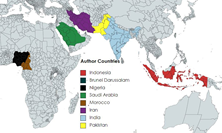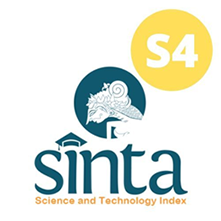Therapeutic and clinical propositions of Mesenchymal Stem Cells(MSCs) focusing on recent trial updates
Abstract
The mesenchymal stroma harbours considerable population of stem cell-like cells with differentiation and self-renewal abilities that originate from several sources like amniotic fluid, Wharton’s jelly, umbilical cord etc. Mesenchymal Stem Cells (MSCs) are most commonly found in the perivascular niche. This multipotent progenitor cells have the ability to differentiate into mesodermal cell types such as adipocytes, chondrocytes and osteocytes. MSCs can also exert significant immunosuppressive and anti-inflammatory effects by interacting with lymphocytes from both innate and adaptive immune system. MSCs of fetal origins can go through same processes as MSCs derived from elsewhere. Before senescence, they make more cell divisions than adult MSCs of bone marrow or adipose tissue. The propitious properties of mesenchymal stem cells (MSCs), such as their ability to differentiate into diverse cell lineages and their regenerative properties, have intrigued researchers, whose work has provided fascinating perspectives on cell-based therapies for wide range of diseases. MSCs have a high potential for replication in vitro. International Society for Cellular Therapy (ISCT)-based MSC isolation has resulted in heterogeneous, nonclonal stromal cell cultures containing stem cells with various multipotent characteristics, committed progenitors, and differentiated cells. Nonclonal stromal cultures which are derived from bone marrow and other tissues are presently used as sources of putative MSCs for therapeutic aims. Also, MSCs have potential to endogenously repair as well as reduce the inflammatory responses that may lead to decreased morbidity and mortality rate of COVID-19. Herein, the MSC-based clinical prospects, clarifies, the recent clinical findings, therapeutic effects of MSC and clinical trials.
This work is licensed under a Creative Commons Attribution-ShareAlike 4.0 International License.
Authors who publish with this journal agree to the following terms:
- Authors retain copyright and grant the journal right of first publication with the work simultaneously licensed under a Creative Commons Attribution License that allows others to share the work with an acknowledgement of the work's authorship and initial publication in this journal.
- Authors are able to enter into separate, additional contractual arrangements for the non-exclusive distribution of the journal's published version of the work (e.g., post it to an institutional repository or publish it in a book), with an acknowledgement of its initial publication in this journal.
- Authors are permitted and encouraged to post their work online (e.g., in institutional repositories or on their website) prior to and during the submission process, as it can lead to productive exchanges, as well as earlier and greater citation of published work (See The Effect of Open Access).











